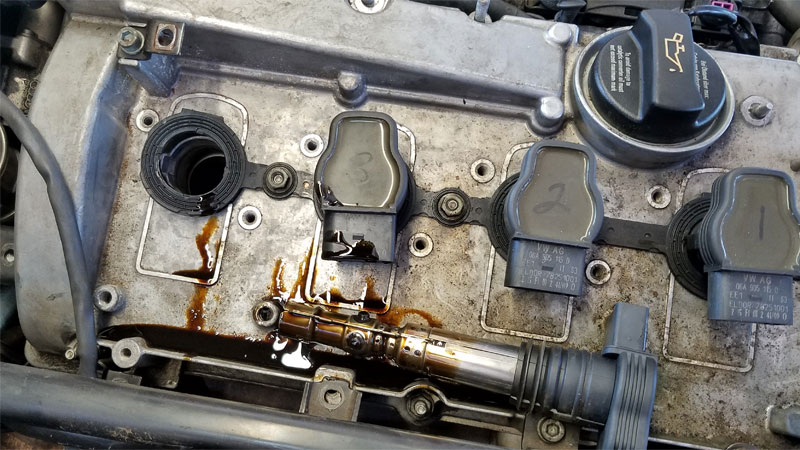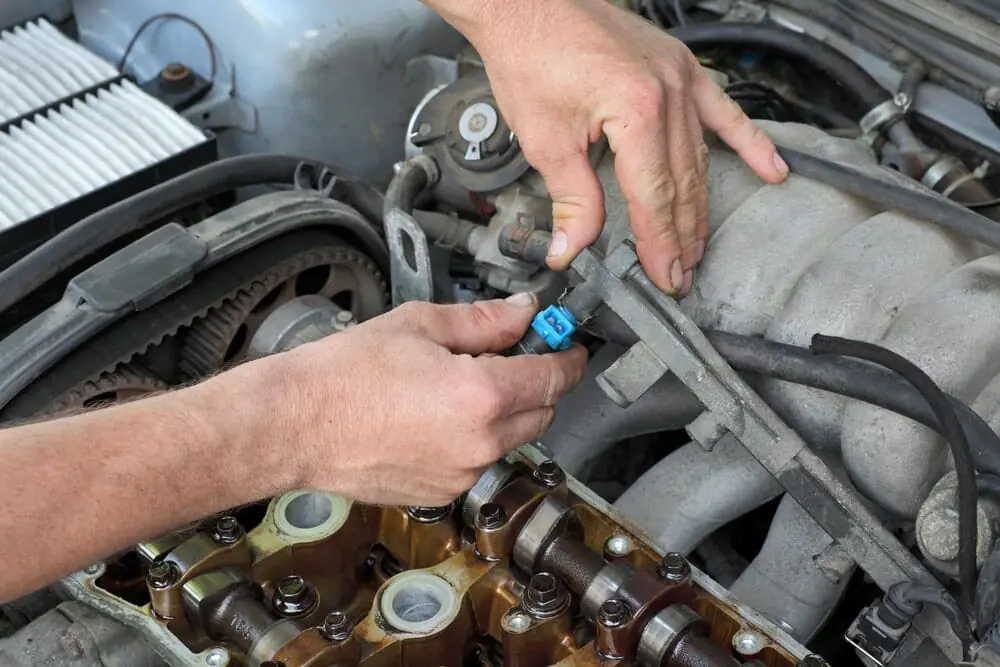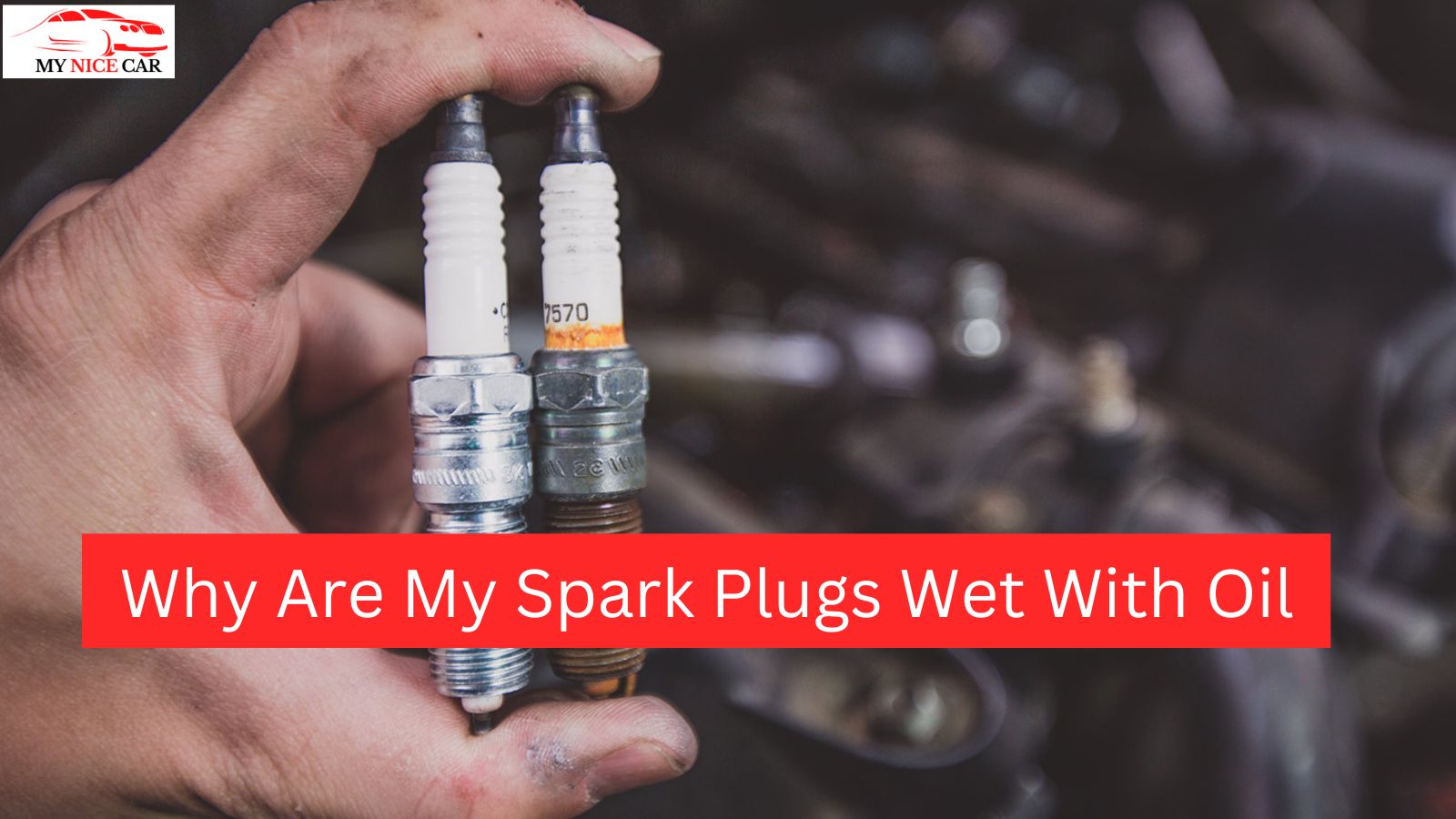Oil is an essential component for the proper functioning of a vehicle. However, oil in the spark plug wells is a problem that requires immediate attention. We understand that you want to know why my spark plugs are wet with oil and you want to solve this problem.
Motor oil and other lubricants are useful if they remain in the designated place in the vehicle. So if you detect oil on your car’s spark plug threads during a routine check or service, don’t panic; However, it is not a license to overlook this as it can lead to serious engine problems.
Spark plugs must not contain oil. So if you find oil on your candles, something is wrong with another component in your engine. The presence of oil on the spark plug threads can have several possible causes.
Leaking O-rings, a cracked rocker cover gasket or head gasket, cracked piston or piston compression rings, and worn valve guides can all be sources of oil on the spark plugs. In this article, we look at the various issues that can cause this problem.
We explain what these problems can mean for your engine as a whole and show you how to fix these problems.
Top Causes
A common observation made during spark plug inspection is the presence of oil permeating the tip of an electrode. In other cases, the oil may be found to collect around one or more of an engine’s spark plug wells.

While this is an obvious cause for concern, there is a lot more to this equation than meets the eye. Read on to learn about the different causes of oily spark plugs.
1. Excessive Oil
Spark plugs are an important component of your engine because without them your car would not have the ability to ignite the fuel in its cylinders. Spark plugs must be clean to work properly. If the spark plugs are very dirty, the spark cannot jump between the two electrodes of the spark plug.
2. Injector Leaks
Wet fouling is less common on modern fuel-injected engines, but can occur due to a number of mechanical failures. An example is a leaky cold start injector.

This would lead to a rich starting mixture in the engine compartment, which would lead to spark plug failure.
3. Defective O-Rings
O-rings help seal the spark plug area to keep out oil and other unwanted substances. O-rings are usually located in the valve cover area. Because o-rings are made of silicone or rubber, they can wear out over time.
High temperatures can degrade and damage o-rings, which in turn allows oil to seep through the o-rings and into the spark plug area.
4. Cracked Piston
Another potential source of spark plug oil contamination is a cracked or damaged piston. When such a fault occurs, oil from an engine’s crankcase can leak into the cylinder that houses the damaged piston.
How To Fix?
The first step in troubleshooting a car’s spark plug oil problem is to find out the exact cause of the problem. With reference to the causes of oil leaks in the spark plug area of a vehicle as mentioned above, the following solutions will help to fix the problem.
1. Conducting Quick Checks
Act quickly by first stopping the engine and disconnecting the vehicle’s battery from the terminal. Disconnecting the negative terminal should be enough to stop the power supply.
2. Remove Excess Oil
If the problem is due to excess oil in the vehicle’s engine, you must drain the excess. There are two different ways to handle oil removal; First, locate and open the drain plug in the engine oil pan to allow excess oil to drain.
However, you have to jack up the car to find the oil pan. On the other hand, get an oil to scavenge pump and use it to remove excess oil through the oil cap or dipstick.
3. Replace A Head Gasket
Replacing a head gasket is one of the most difficult repairs on an engine. This is because to access the head gasket, the cylinder head must be completely removed from the engine block, which is time-consuming and difficult to do correctly.

You can also take your car to a garage to have the head gasket fixed, but keep in mind that you’ll probably end up with a pretty insane repair bill. Again, this is one of the complicated and time-consuming fixes of this issue.
4. Replace the Cracked Piston
If you have a cracked or broken piston causing oil to leak in the spark plug area, replace the component.
For this job, you will need a wrecking hammer and a piston ring compressor. However, if you are not sure of repairing the component perfectly, contact a professional auto mechanic to do the job.
Is Spark Plugs Wet With Oil Bad?
Leaving oil on the spark plugs for an extended period of time will result in engine misfire, poor fuel economy, and poor engine performance. It could also destroy your catalytic converter as unburned fuel reaches the exhaust.
On the other hand, excessive oil saturation of a spark plug electrode is a problem. This usually means that too much oil is getting into one or more of an engine’s combustion chambers. The severity of this condition largely depends on the source of the oil itself.
FAQ
Q. 1) What does it mean if my spark plug is soaked in oil?
Ans. 1) Oil leaking from the spark plug wells is an indicator of a fairly serious problem that needs to be investigated and repaired immediately. It is almost always due to a bad seal or o-ring, but it can also be caused by a bad piston or worn valve guides.
In extreme cases, it can even cause an engine fire. If you see any of these signs, you need to check spark plugs immediately.
Q. 2) Can you drive a car if spark plugs are oily?
Ans. 2) It is entirely possible to drive with oily spark plugs. However, it is never recommended to do so. First, a spark plug’s ability to fire as intended is severely compromised when saturated with oil.
This, in turn, often leads to an apparent misfire condition. If the source of this oil contamination is not addressed, these spark-related problems will only get worse over time.
Q. 3) How do you fix a flooded spark plug?
Ans. 3) It is important to remember that it is not always necessary to completely replace the spark plug wells. Often it is enough to simply replace parts of the valve, especially the valve cover, to properly repair an oil-filled spark plug.
If the gasket around the spark plug isn’t sealing tight, oil is likely to leak in this area, which can build up and eventually cause engine problems, as mentioned above.
Q. 4) How much does it cost to fix oil on spark plugs?
Ans. 4) The answer to this question depends largely on the root of the problem. As you’ve already noticed, spark plug oil leakage can have two different causes, including problems with the piston, o-ring, head gasket, or the spark plug itself.
If you just want to replace the spark plug, the part is dirt cheap and costs between $16 and $100. However, this does not include labor costs, which can cost between $40 and $150 depending on your location. the one who would do the work.
Conclusion
These spark plugs are very important components in your engine, even if they are very small. It is very common for engine oil to leak onto the spark plug, affecting performance and possibly leading to complete spark plug failure.
If you notice signs of oil leaking from the spark plug, you need to fix the problem as soon as possible to avoid major problems down the road that will take a lot of time and effort, if not a lot of money.



